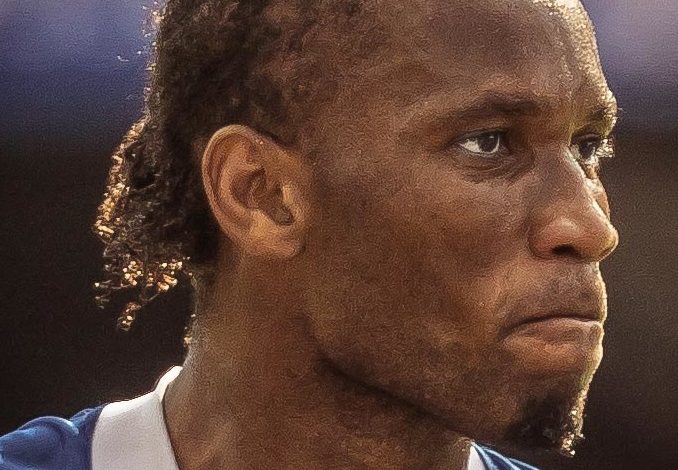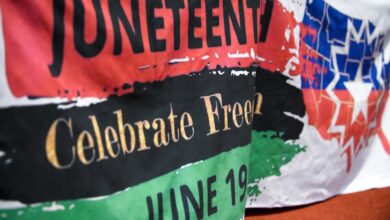Didier Drogba: The Untold Story of a Football Legend

Africa facts zone delves into the life of Didier Drogba, affectionately known as “Tito”, charting his journey from his early days to becoming a football icon and revered Chelsea FC legend.
Early Life and Challenges of Didier Drogba
Born on March 11, 1978, in Abidjan, Côte d’Ivoire, Drogba’s childhood was marked by economic hardship.
His parents, both junior bankers, struggled to provide amidst Ivory Coast’s economic crisis, prompting many Ivorians to seek better opportunities in France.
Young Drogba faced malnutrition and harsh living conditions, leading to limited physical and mental development.
His parents’ hope lay in financial assistance from his uncle, Michel Goba, an early Ivorian migrant to France and a footballer at Stade Brestois 29.
Journey to France and Pursuit of Football Dreams
The difficulties of obtaining a visa for Goba resulted in Drogba traveling alone to France at a tender age, marked with a label at the airport indicating his destination.
In France, Drogba faced the challenge of balancing football aspirations with his parents’ desire for him to focus on academics.
ALSO READ: Samuel Eto’o: The Legendary Journey from Humble Beginnings to Football Greatness
Samuel Eto’o: The Legendary Journey from Humble Beginnings to Football Greatness
Return to Ivory Coast and the Struggle Continues
Drogba’s initial stay in France was short-lived as homesickness drove him back to Ivory Coast.
However, the economic situation back home had worsened, impacting his education and pushing him towards local football.
A Second Chance in France
Upon returning to France for a second time, Drogba continued his education while nurturing his football talent.
He joined Levallois SP in 1993 and eventually pursued a degree in Accounting at the University of Maine while playing for Le Mans.
Football Career and Chartered Accountancy
Post his accounting degree, Drogba, at 21, decided to focus fully on football, transitioning from right-back to a forward.
His dedication led to a move to Guingamp, and then Marseille, where he won the French Ligue 1 Player of the Year.
Chelsea FC and Becoming a Legend
Drogba’s move to Chelsea FC in 2004 for approximately $36 million marked the beginning of a legendary career.
His impact at the club went beyond the field, as he became an icon for Chelsea fans, comparable to the adoration Messi and Ronaldo receive at Barcelona and Real Madrid.
ALSO READ: Sadio Mane’s Rise to Fame: A Tale of Talent and Tenacity
Family Life and Commitment
Drogba’s family, especially his parents Albert and Clotilde, played a significant role in his life. Initially hesitant about his football career, they later became proud witnesses of his success.
Drogba’s marriage to Diakité Lalla, a Malian woman he met in Paris, blessed them with three children, further solidifying his family-oriented nature.
Philanthropy and Influencing African Football
Drogba’s background fueled his philanthropic activities, including establishing the Samuel Eto’o Laikipia Football Academy and tackling social issues like racial discrimination.
His influence extends to inspiring young Ivorian footballers, shaping the future of African football.
Legacy and Enduring Influence
Didier Drogba’s story is more than just his exploits on the pitch; it’s a tale of overcoming adversity, dedication to family, and leaving a lasting impact on football and society.
His legacy continues to inspire young footballers in Ivory Coast and across Africa.





